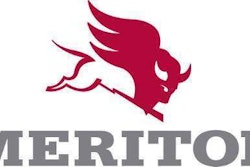
The Federal Motor Carrier Safety Administration anticipates granting provisional authority to the first Mexican carrier in the cross-border trucking pilot program this month. The agency also plans to respond to public comments on the two Mexican carriers that have completed Pre-Authority Screening Audits.
In a new report to Congress, FMCSA outlined steps it is taking or has taken to address issues raised by the Office of Inspector General’s Aug. 19 account to Congress of the program. Federal law requires this oversight office to report to Congress any remaining legal requirements that must be met before initiating a pilot program. In response, the agency must take action to satisfy any deficit the OIG cites to comply with law.
Since that OIG report, FMCSA developed and implemented a policy for conducting 50 percent of PASA and compliance reviews in Mexico. Agency officials are working with OIG to meet this recommendation. FMCSA reported it will send audit teams to ensure safety during the PASAs and CRs.
So far, 11 Mexico-domiciled motor carriers have applied for long-haul authority, and agency officials completed the PASAs on two of these carriers in Mexico on Aug. 25 and 26. In a PASA review, the motor carrier must demonstrate it complies with requirements for drug and alcohol testing, hours of service, insurance, vehicle maintenance and inspections, and qualified drivers.
The agency awarded the contract for electronic monitoring devices with the Global Positioning System it will require for Mexican carriers to Teletrac. The $683,000 12-month contract could be extended, depending upon the company’s performance. The cost includes installation and training of law enforcement regarding the devices, which the company completed last month.
FMCSA’s congressional report noted that a key difference between the upcoming program and the previous demonstration project is that participating Mexican carriers must designate specific vehicles and drivers for long-haul transportation. To do so, the agency needed a system allowing it and state law enforcement to validate approved vehicles and drivers. Since the OIG report, agency officials have completed work to post eligibility information on its Query Central system, which became operational Aug. 22. FMCSA is working with OIG to meet this recommendation.
Also, rather than issuing site-specific plans for checking trucks and drivers as the participants cross the border, the agency developed a plan for coordinating with U.S. Customs Border Protection and the states to ensure inspection at the border. Carriers that were in the previous pilot program with an acceptable safety record for at least 90 days will not be subject to compliance checks each time they cross for the first three months.
In preparing the report, the OIG staff interviewed state enforcement officials and confirmed their general readiness to enforce safety rules, but training had not been completed. Since then, the agency has provided webinars for law enforcement, which are posted on its Website. FMCSA also trained auditors who will conduct PASAs.
FMCSA has indicated the cross-border program could begin by the end of October. The U.S. Court of Appeals for the District of Columbia rejected the Owner-Operator Independent Drivers Association’s request for a stay of the program, pending court review Sept. 8. It will schedule oral arguments following the completion of brief filings, with the last brief due by Dec. 5.
The Teamsters union and Public Citizen also petitioned a federal appeals court Sept. 2 to review the agency’s plans to proceed with a cross-border trucking pilot program with Mexico.










